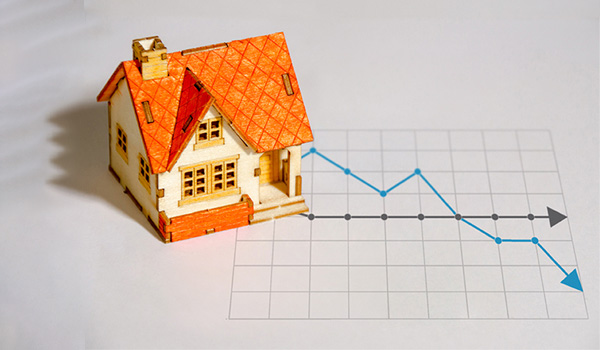Navigating the world of mortgages can feel like stepping into a labyrinth. For first-time buyers in Ireland, choosing between a fixed or variable rate mortgage is often one of the most significant financial decisions they’ll face. The stakes are high, and understanding your options is crucial to securing the best mortgage rates in Ireland. Whether you’re looking for stability with a fixed rate or flexibility with a variable rate, each choice comes with its own set of advantages and challenges.
As you embark on this journey toward homeownership, it’s essential to arm yourself with knowledge about these two types of mortgages. This guide will break down everything you need to know about fixed vs variable mortgages in Ireland, helping you make an informed decision that suits your financial goals.
Let’s dive deep into what makes these mortgages tick and how they can impact your future!
Understanding Mortgages
Mortgages are a fundamental part of the home-buying process. They enable buyers to purchase property without needing the full purchase amount upfront. Instead, you borrow money from a lender and repay it over time.
At its core, a mortgage is essentially a loan secured by real estate. If repayments aren’t made on time, the lender has the right to take possession of the property through foreclosure.
Interest rates play a crucial role in determining how much you will pay overall. This rate can be fixed or variable, influencing your monthly payments and long-term financial planning.
Understanding terms like principal, interest, amortisation period, and equity is key for any potential homeowner. Each term impacts how your mortgage functions and what you’ll ultimately owe after years of payments.
Before diving into specific types of mortgages, grasping these basics equips you with essential knowledge for making informed decisions later on. Book a consultation with our mortgage specialists and find the best financing options for your investment property!
What is a Fixed Rate Mortgage?
A fixed rate mortgage is a type of home loan where the interest rate remains unchanged throughout the duration of the loan. This means your monthly payments stay consistent, making budgeting easier for homeowners.
Typically, these loans are offered in different term lengths, commonly ranging from 15 to 30 years. The predictability can be appealing to first-time buyers who want stability in their financial planning.
With a fixed rate mortgage, you won’t have to worry about fluctuations in market rates affecting your payment amount. Even if interest rates rise, you’ll continue enjoying your locked-in rate.
This option often provides peace of mind during economic uncertainty. Homeowners value this reliability as it allows them to plan ahead without unexpected costs derailing their finances.
Fixed Rate Mortgage: Pros and Cons
A fixed-rate mortgage offers stability. With this type of loan, your interest rate remains the same throughout the mortgage term. You know exactly what to expect in terms of monthly payments, making budgeting easier.
One significant advantage is protection against rising interest rates. If market rates increase, you won’t be affected. This can save you a considerable amount over time, especially during periods of economic uncertainty.
However, there are downsides to consider. Fixed-rate mortgages often have higher initial rates compared to variable options. This means you could miss out on lower costs if the market shifts favorably.
Another factor is flexibility. If you’re looking for a shorter-term commitment or plan to sell soon, locking into a long-term fixed rate might not suit your needs as well as other options would. Understanding these pros and cons helps first-time buyers navigate their choices effectively.
What is a Variable Rate Mortgage?
A variable rate mortgage, often referred to as a tracker or adjustable-rate mortgage, has an interest rate that can fluctuate over time. This means that your monthly payments may vary based on changes in market rates.
Typically linked to an index or benchmark, the rate can rise or fall depending on economic conditions set by financial institutions. As a result, borrowers could find themselves paying less when rates drop but might face higher costs if interest rates increase.
This type of mortgage is appealing for those who are comfortable with risk and potential fluctuations in their financial commitments. It offers possibilities for lower initial payments compared to fixed-rate mortgages. However, it’s essential to stay informed about changing market trends since they directly affect your payment structure over time. Enquire now to get expert insights tailored to your needs!
Variable Rate Mortgage: Pros and Cons
A variable rate mortgage can be an appealing option for many borrowers. One major advantage is the potential for lower initial rates, which can lead to significant savings in the early years of your loan.
As interest rates fluctuate, there’s a chance that your payments may decrease if market conditions are favorable. This flexibility can make budgeting easier for some homeowners.
However, it’s essential to consider the risks involved. If interest rates rise unexpectedly, your monthly payments could increase significantly over time. This unpredictability might strain your finances if not managed properly.
Another point worth noting is that variable-rate mortgages often come with fewer penalties for early repayment compared to fixed-rate options. This feature allows you more freedom should you decide to pay off your mortgage sooner than planned or refinance later on.
Weighing these pros and cons will help determine if a variable rate aligns with your financial goals and risk tolerance.
Factors to Consider when Choosing a Mortgage
When choosing a mortgage, your financial situation takes center stage.
- Assess your income stability and existing debts before making any commitments. A clear understanding of your budget will help you avoid overextending yourself.
- Next, consider the length of time you plan to stay in your home. If it’s a long-term investment, a fixed rate might offer peace of mind against rising rates. However, if you’re likely to relocate soon, a variable rate may save you money initially.
- Additionally, think about market conditions. Current mortgage interest rates in Ireland can fluctuate significantly. Staying informed on these trends helps ensure you make an educated decision.
- Don’t overlook fees associated with different mortgages either; they can impact overall affordability. Consult experts for tailored advice—money-maximising advisors can provide insights specific to first-time buyers navigating this complex landscape.
How to Decide Between Fixed or Variable Rate Mortgage
Deciding between a fixed or variable rate mortgage can feel daunting.
- Start by assessing your financial situation and goals. Are you planning to stay in your home long-term, or do you see it as a temporary investment?
- Consider the stability of fixed rates against the flexibility of variable ones. Fixed rates offer predictable monthly payments, which can be comforting for budget planning. On the other hand, variable rates may start lower but can fluctuate with market changes.
- Think about your risk tolerance. If you prefer security and peace of mind during economic uncertainty, a fixed rate might suit you better. If you’re open to potential savings from lower initial costs and are willing to embrace some volatility, exploring a variable option could be worthwhile.
- Consult with professionals like Money Maximising Advisors who specialise in mortgage advice in Ireland to gain insights tailored specifically for first-time buyers navigating this critical decision-making process.
Tips for Negotiating Your Mortgage Terms
When it comes to negotiating your mortgage terms, knowledge is power.
- Research the current market rates and be aware of what competitors offer. This will arm you with valuable information during discussions.
- Don’t be afraid to ask for lower interest rates or reduced fees. Lenders often have wiggle room that they won’t disclose unless prompted.
- Timing can also play a crucial role in your negotiations. Approach lenders when demand is low, such as during the winter months, to increase your chances of better deals.
- Leverage personal circumstances too. If you have a solid credit score or are a first-time buyer, remind them how these factors make you an attractive customer.
- Don’t rush into any agreement. Take your time reviewing offers and consult Money Maximising Advisors if needed before making significant decisions.
Conclusion
When it comes to choosing between a fixed or variable rate mortgage, the best choice depends on your personal circumstances and financial goals. Each type of mortgage has its unique benefits and drawbacks that can significantly impact your finances over time.
Understanding how each option works is crucial for making an informed decision. Fixed-rate mortgages offer stability in payments, which can be especially appealing for first-time buyers looking to budget effectively. On the other hand, variable-rate mortgages may present opportunities for savings when interest rates are low but come with inherent risks as rates fluctuate.
Consulting with Money Maximising Advisors could provide additional insights tailored to your situation. They can assist in negotiating favorable terms that suit both short-term needs and long-term aspirations.
Choosing a mortgage isn’t just about getting the best deal; it’s about aligning it with your life objectives while ensuring you’re comfortable throughout the journey.
Talk to us at +353 91 393 125
Mail us at office@mmadvisors.ie
Book an appointment: Booking Calendar
Visit our office at Unit 3, Office 6, Liosban Business Park, Tuam Rd, Galway, Ireland
Read more- Why Consider a Public Sector Mortgage for Your Next Property Purchase?










